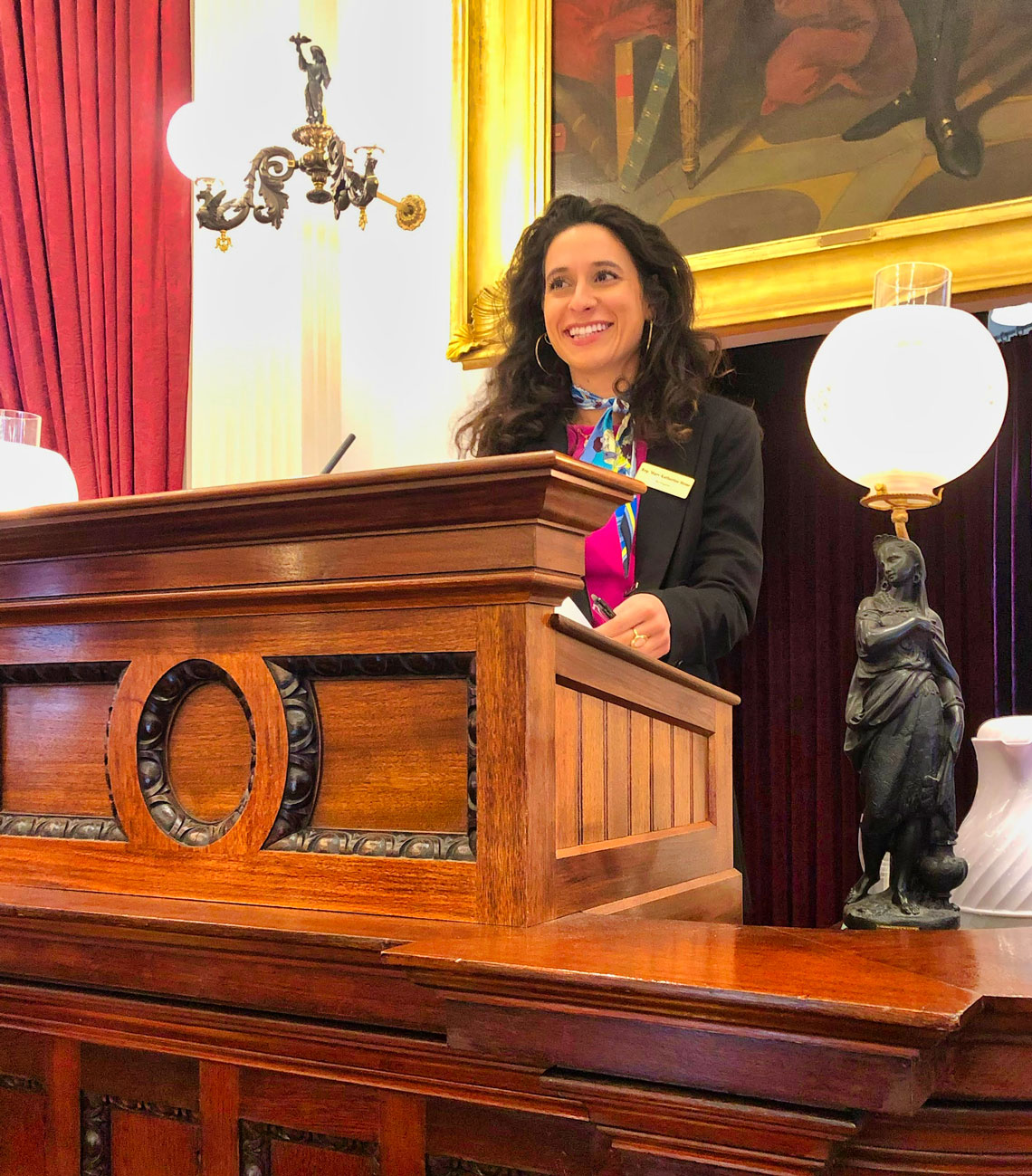 Vermont state representative, occupational therapist, and UAB OT alumna Mary-Katherine Stone sees her calling as uplifting and highlighting vulnerable voices. Occupational therapists (OTs), she says, witness parts of people’s lives that are often hidden from others and that reveal weaknesses—and sometimes gaping holes—in the social safety net.
Vermont state representative, occupational therapist, and UAB OT alumna Mary-Katherine Stone sees her calling as uplifting and highlighting vulnerable voices. Occupational therapists (OTs), she says, witness parts of people’s lives that are often hidden from others and that reveal weaknesses—and sometimes gaping holes—in the social safety net.
“We know you’re struggling to make ends meet,” she says. “We know your insurance isn’t going to cover all the therapy you need. We see the family dynamics, and hear that you don’t feel safe at home. We realize that you’re struggling to find childcare for your kid.”
That people trust OTs enough to share their personal challenges is a gift, as well as a big responsibility, says Stone, who ran for office to bring these stories directly to Vermont’s political decision makers.
“I’ve always seen how and why we need frontline healthcare workers, and particularly OTs, sitting at the table when decisions are being made that directly impact the patients and families we work with or us as practitioners,” says Stone.
From Artist to Occupational Therapist
Stone grew up Oneota, AL, the daughter of an Egyptian immigrant and a mother born and raised in Alabama. As a little girl, she loved performance and art, and began studying dance as a 3-year-old. She still works in stained glass and other media and was dancing with three Vermont companies until she ran for office in 2022.
It was Stone’s creativity that led her to occupational therapy. As an undergraduate in interdisciplinary studies at the University of Alabama’s New College, she envisioned a future in the arts. As she approached graduation, however, Stone moved her sights to a career in which she could work directly with people to improve their lives. For her, this meant healthcare.
Unsure which healthcare profession to enter, Stone observed and talked with ophthalmologists, doctors, nurses, physical therapists, and others. During this process she discovered the creativity and versatility of occupational therapy.
“I found that it is the most creative [healthcare] profession, and it offered me the most natural segue from art to healthcare,” she says.
Stone graduated from UAB’s MSOT program in 2013, earned her license, and began practicing as an occupational therapist. After completing a fellowship in integrative medicine at George Washington University in Washington DC, she moved to Vermont, drawn by the state’s rich natural world and strong sense of community.
Using the ‘OT Brain’ in Politics
Stone began serving in the Vermont legislature in January 2023. One of her primary goals was to help fill the gaps she saw in her work in acute inpatient care at the University of Vermont Medical Center in Burlington. During her 2-year term, she has cosponsored bills aimed at improving Vermonters’ ability to earn a living wage and access housing, healthcare, childcare, and public education.
This May, Governor Phil Scott signed into law the first bill for which Stone was the primary sponsor. This is interstate agreement called the OT Compact opens a new website will soon allow occupational therapists licensed in one member state to practice in other member states without additional licenses.
Now, as a member of the legislature’s Education Committee, Stone is prioritizing school voucher system reform and legislation that supports all Vermont’s children, including those with special needs. At first, she wondered how her experience as an OT would help her make effective contributions to decisions about education.
“I found that, as an occupational therapist, I have a place [on the committee],” she says. “We have a different way of thinking—the OT brain instantly goes to questions like, can every child access these things that we’re talking about, and if not, why—and how can we make that different?”
Stone, who is running for reelection in November, has a message for future and current OTs: their experiences, insight, and skills are unique and valuable resources.
“We’re taught to think in creative ways, so don’t take that for granted, and don’t limit yourself,” she says. “I encourage OTs to always keep their minds open to how they can expand and use the tools they have to help their communities.”

